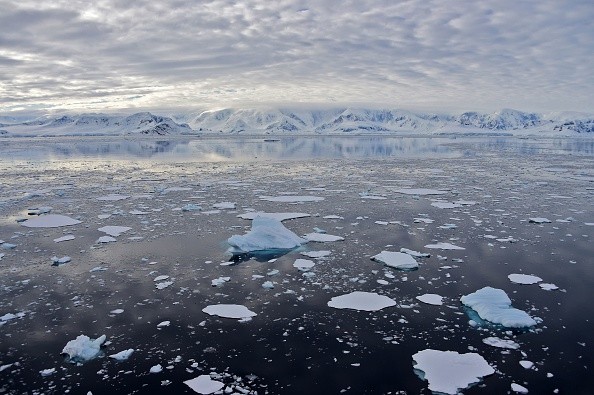Antarctic sea ice has reached record low levels for the second time in two years. Some scientists are concerned that these sudden declines are a sign that the climate crisis may more obviously affect this huge, complicated, and remote region.

Melting Level
According to the National Snow and Ice Data Center, or NSIDC, the sea ice that surrounds Antarctica shrank to just 737,000 square miles (1.91 million square kilometers) on February 13-below the previous record of 741,000 square miles (1.92 million square kilometers) established on February 25 of last year.
Sea ice could still lose more mass, and it might take longer than a week to reach its minimum extent for the southern summer.
Since 1978, when satellite monitoring of sea ice began, the past two years are the only ones whose extent has fallen below 2 million square kilometers.
According to Ted Scambos, a glaciologist at the University of Colorado Boulder, there is a downward trend.
Predicting Melts
It is more difficult to predict how the Antarctic continent and its surrounding waters will react to climate change because, unlike the Arctic, where the pace of sea ice loss has followed a relatively continuous downward trajectory as climate change has accelerated.
The two poles are significantly dissimilar from one another. Antarctica's sea ice can expand without being confined by land, unlike the Arctic, an ocean surrounded by landmass. With higher winter highs and steeper summer lows, Antarctic ice tends to be thinner than Arctic ice.
Until recently, the region was acting radically differently than those climate models anticipated, although they forecast losses in Antarctic sea ice comparable to those in the Arctic.
In 2014, when it reached a record high of 7.76 million square miles, the extent of winter sea ice confirmed the hypothesis that the Antarctic might be comparatively shielded from global warming.
But, something altered in 2016. Researchers saw a sharp declining trend.
Some initially attributed it to the regular variability of this enormously complex continent's numerous, interconnected climatic systems. But after two consecutive years with record-low sea ice, scientists are worried.
"The question is, has Antarctica been affected by climate change? Is this signaling the end of the world? Will the sea ice permanently vanish in the summer of the upcoming years? "Christian Haas, director of the Alfred Wegener Institute's Sea Ice Physics Research Department, told CNN.
Sea ice may be so low due to several variables, such as winds, ocean currents, and ocean heat.
In some areas of the Antarctic, air temperatures have been about 1.5 degrees Celsius higher than usual.
He explained that heat was being agitated into the upper layer of water surrounding the Antarctic. This notion "has huge consequences for the stability of the Antarctic ice sheet" if supported and connected to the overall warming of the oceans.
Loss of Ice
Sea ice loss may have repercussions that extend beyond Antarctica.
The loss of the Antarctic sea ice fringe exposes coastal ice sheets and glaciers to waves and warm ocean waters, increasing their susceptibility to melting and breaking apart. This does not directly impact sea levels because the ice is already floating in the ocean.
Alarming developments have been occurring in several areas of Antarctica for some time.
Related Article : Ocean Temperature Reaches "Point of No Return" as Climate Change Creates Irreversible Scenario
For Environmental News, don't forget to follow Nature World News!
© 2025 NatureWorldNews.com All rights reserved. Do not reproduce without permission.





